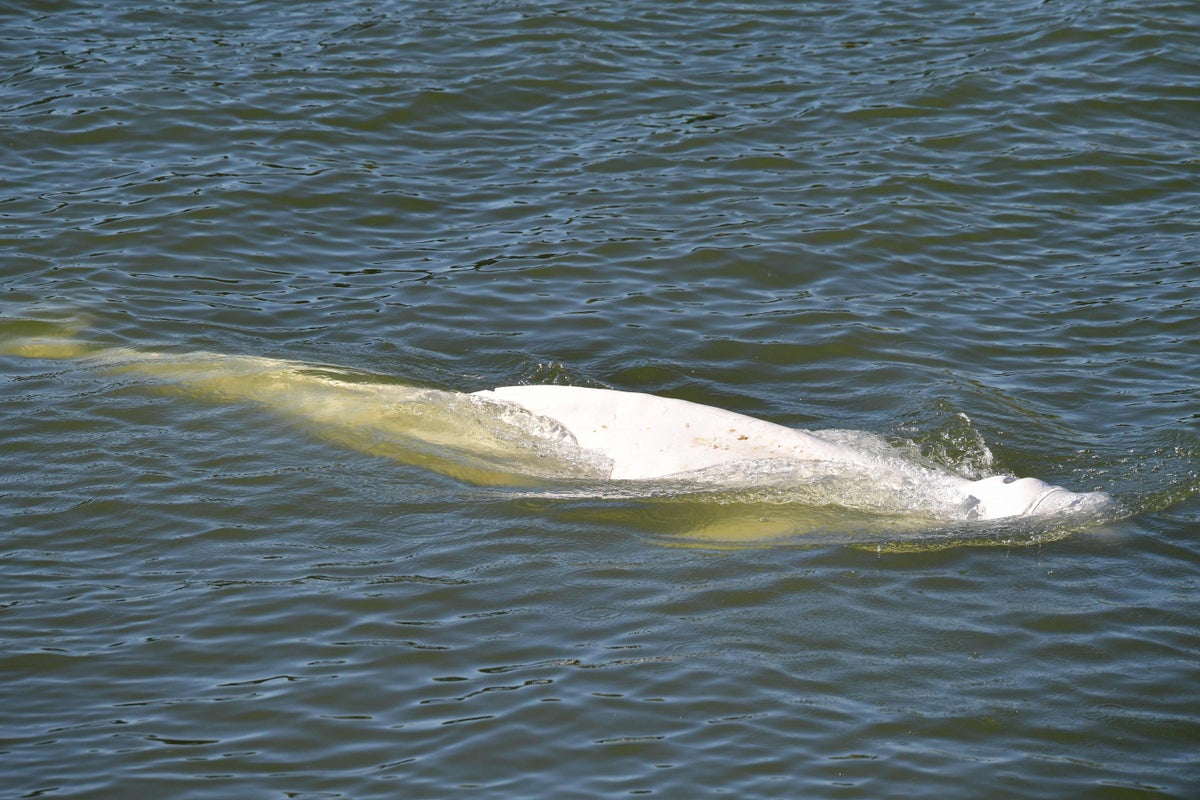
French authorities are to give vitamins to a starving beluga whale stranded in the River Seine near Paris after it refused food.
The cetacean was first spotted coasting along the Seine on Tuesday, miles away from the colder Arctic water it is used to, and has now swum 44 miles north of Paris.
Refusing any food it has been given, environmental experts worry that they are in a “race against the clock” to save the beluga.
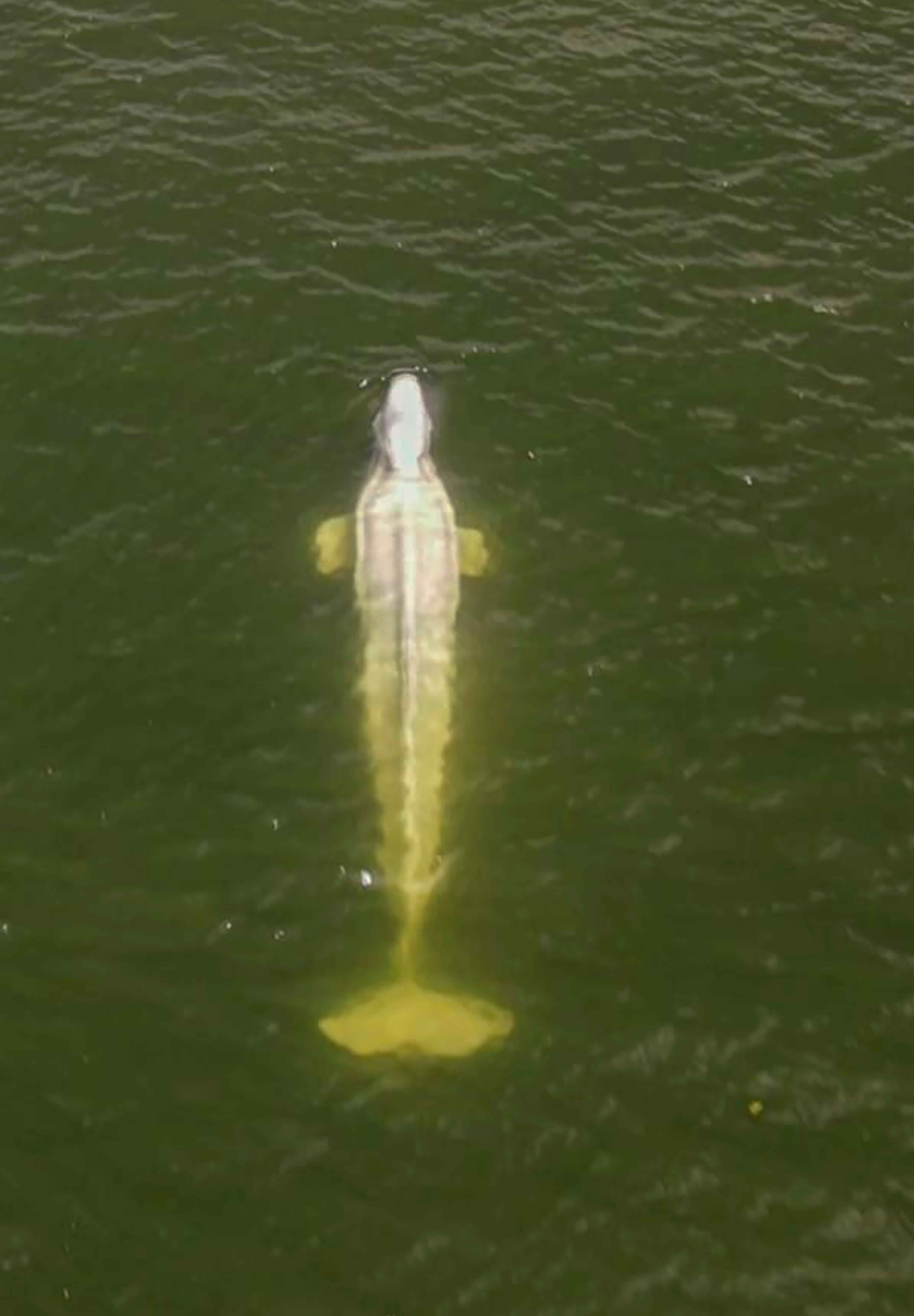
Lamya Essemlali, president of marine conservation group Sea Shepherd France, said: “It is really extremely thin. Its bones are protruding. I don’t know if it’s already too late.”
Rescuers have tried to feed the beluga frozen herring and live trout, but it has not accepted either.
“It’s quite emaciated and seems to be having trouble eating,” Isabelle Dorliat-Pouzet, a senior police official in the Eure department in Normandy, which is overseeing the rescue operation, told a press conference.
She said they hope that injecting the beluga with vitamins will help stimulate its appetite.
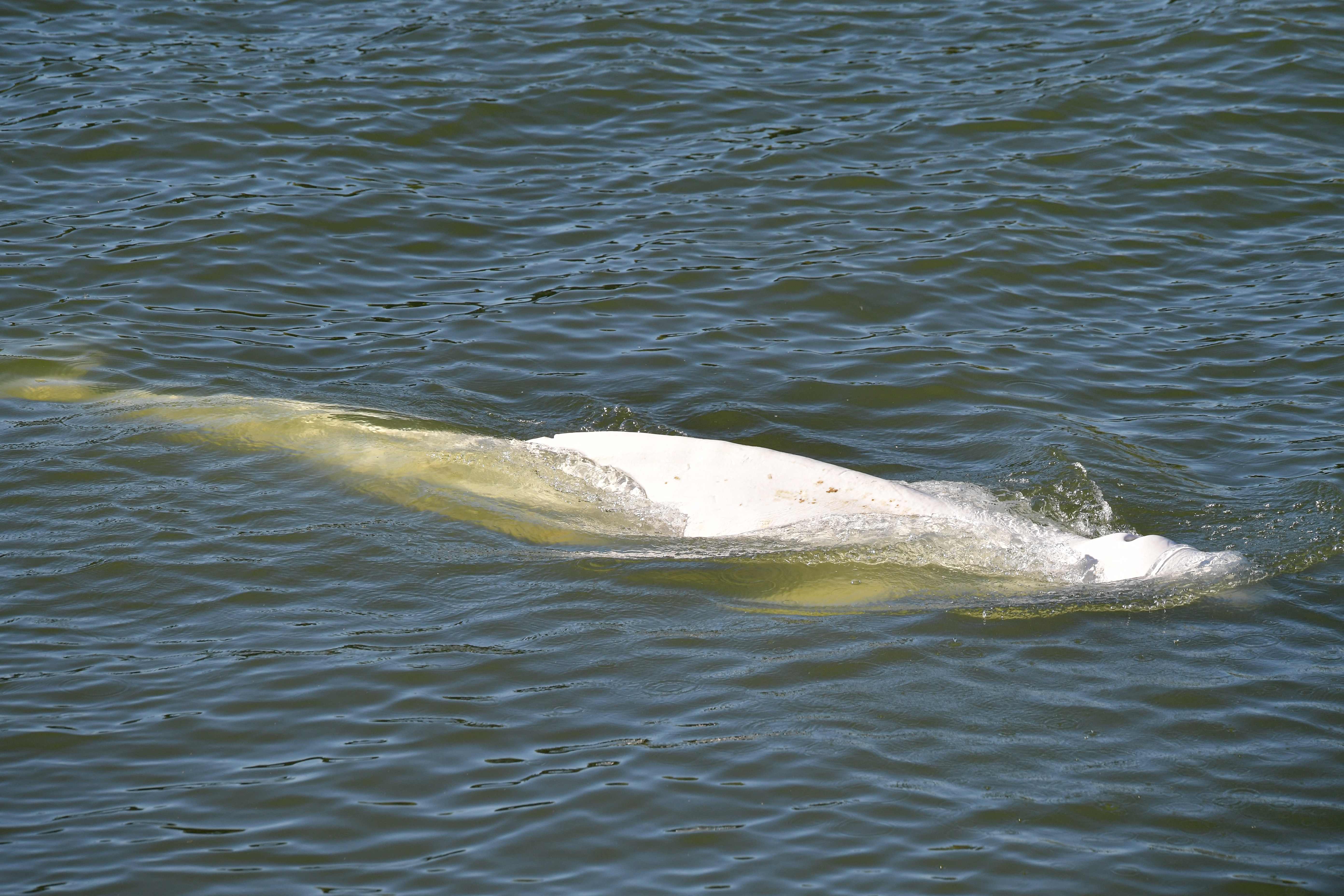
Ms Dorliat-Pouzet added that small spots had appeared on the whale’s white however, it is not clear whether this is a result of the fresh water or signs of health issues.
Authorities are still deciding the best course of action regarding the beluga’s return to the sea.
They are unsure whether to wait for the animal to regain its appetite in the waterway before they guide it back to more familiar territory.
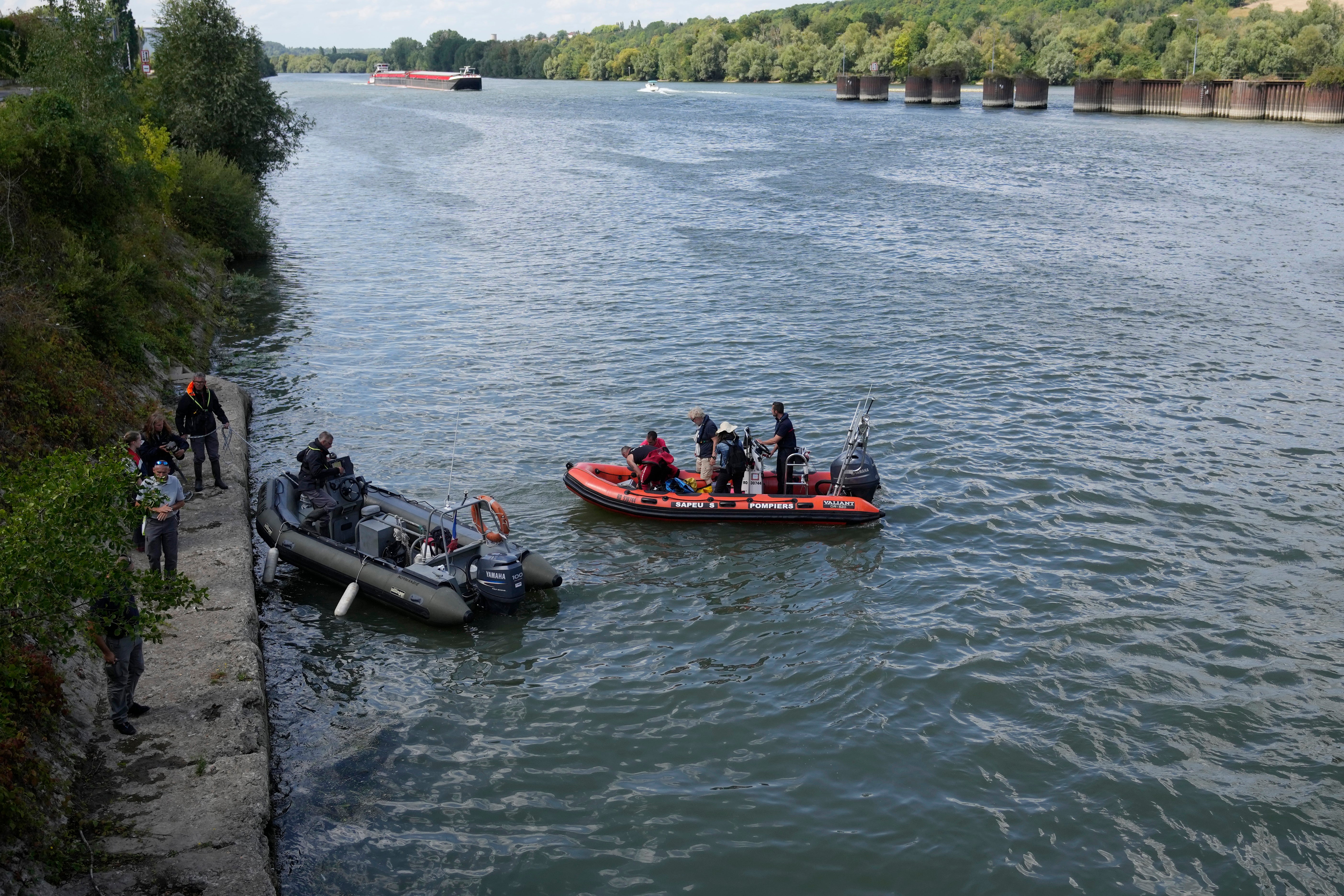
On Friday, Gerard Mauger of the GECC marine conversation society said that despite being a notably sociable mammal, “it is behaving the same as yesterday, it seems very skittish. It rises to the surface only briefly, followed by long dives.”
Based on sonar recordings, it was also emitting very few of the chirps and quicks the whales are known for, raising further concerns about the animal’s health.
Rescuers have been monitoring the beluga with two drones after it was spotted in the river at Saint-Pierre-la-Garenne.
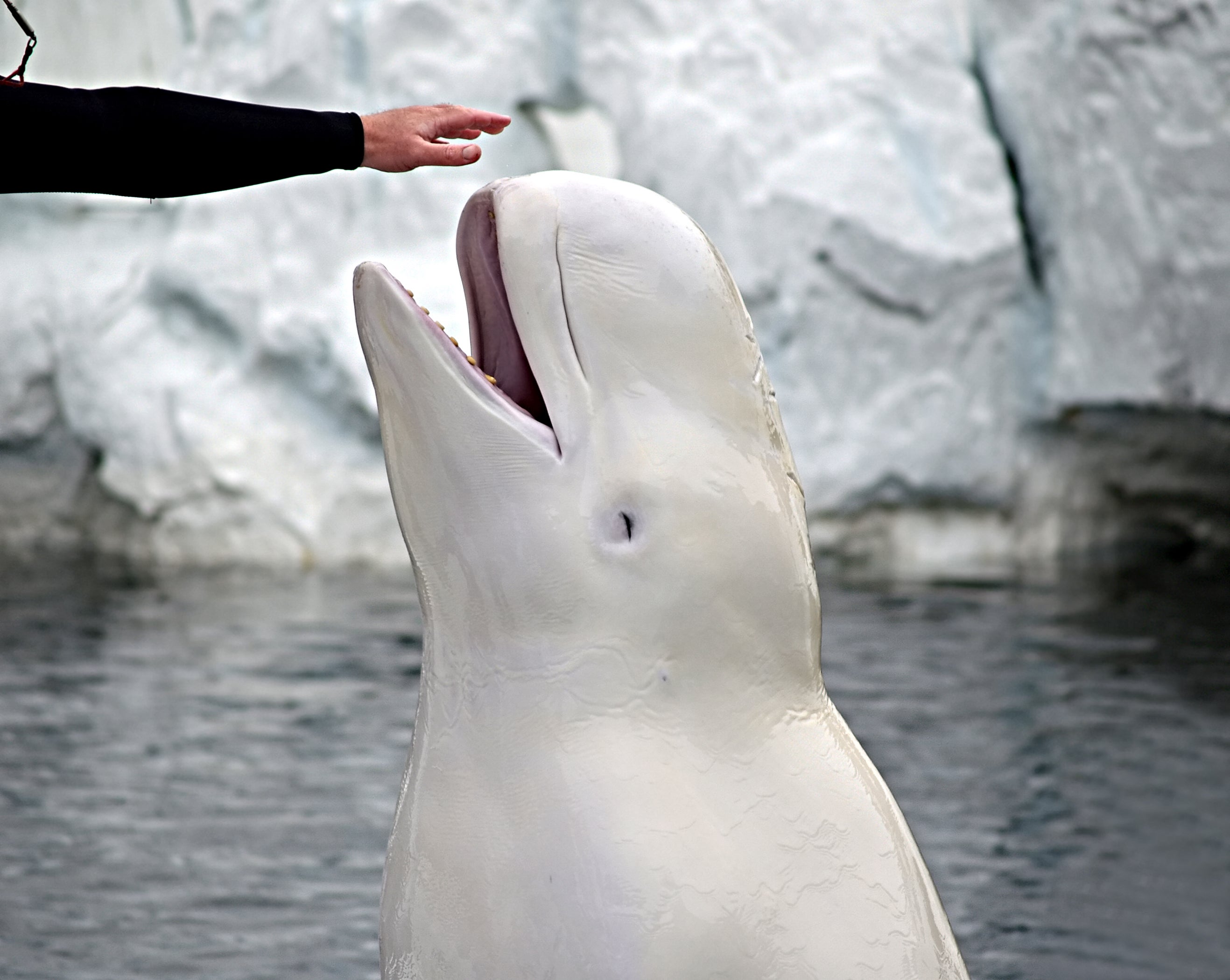
Belugas normally live in Arctic and sub-Arctic oceans, although they do sometimes stray into more southern waters and river estuaries and can temporarily survive in fresh water.
It is not known why the animal has strayed so far from its natural habitat of colder Arctic waters, past the port of Rouen, and dozens of miles up a busy waterway towards the French capital.
Members of the public are being urged to keep away from the animal.







